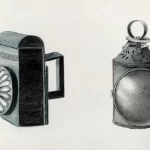Intellectual Property Law in India
- October 16, 2023
- By Sarita Thomas
- Read 14 minutes
Introduction to Intellectual Property Law
Intellectual Property (IP) refers to creations of the mind, such as inventions, literary and artistic works, designs, and symbols, names, and images used in commerce. Intellectual Property Law in India is governed by various legislations, including the Patents Act, 1970, the Copyright Act, 1957, the Trademarks Act, 1999, and the Designs Act, 2000.
Patents protect inventions and grant exclusive rights to the inventor for a limited period of time. The Patents Act in India provides for the grant of patents for new inventions, involving an inventive step and capable of industrial application.
Copyright protects original works of authorship, such as books, music, films, and software. The Copyright Act in India grants exclusive rights to the creators of such works, including reproduction, distribution, and adaptation.
Trademarks protect distinctive signs, such as logos and brand names, that distinguish goods or services. The Trademarks Act in India provides for the registration and protection of trademarks.
Designs protect the visual appearance of a product or its ornamentation. The Designs Act in India provides for the registration and protection of designs.
Intellectual Property Law plays a crucial role in promoting innovation, creativity, and economic growth. It encourages individuals and businesses to invest in research and development, knowing that their creations will be protected and rewarded.
Importance of Intellectual Property
Intellectual property plays a crucial role in the development and growth of a country’s economy. It provides legal protection for creative and innovative ideas, inventions, and designs. Patents, trademarks, copyrights, and trade secrets are some of the key components of intellectual property law. These laws encourage individuals and companies to invest in research and development, as they provide exclusive rights and incentives to the creators and inventors. By protecting intellectual property, it fosters innovation, promotes competition, and ensures fair compensation for the creators. It also helps in attracting foreign investments and technology transfers, as it provides a secure environment for the protection of intellectual assets. Overall, intellectual property rights are essential for promoting creativity, fostering economic growth, and encouraging technological advancements in India.
Types of Intellectual Property
In India, there are several types of Intellectual Property that are protected by law. These include:
- Patents: Patents provide exclusive rights to inventors for their inventions, granting them the right to prevent others from making, using, or selling their invention without permission.
- Trademarks: Trademarks are used to protect brand names, logos, and slogans. They help consumers identify the source of goods or services and distinguish them from those of others.
- Copyrights: Copyrights protect original works of authorship, such as literary, artistic, musical, and dramatic works. This includes books, paintings, songs, and plays.
- Designs: Designs protect the visual appearance of a product, including its shape, configuration, pattern, or ornamentation.
- Geographical Indications: Geographical indications are used to identify goods that originate from a specific geographical location and have certain qualities, characteristics, or reputation due to that location.
- Trade Secrets: Trade secrets are confidential information that gives a business a competitive advantage. They can include formulas, recipes, manufacturing processes, customer lists, and marketing strategies.
Copyright Law in India
Copyright Protection
In India, copyright protection is governed by the Copyright Act, 1957. This act provides legal protection to original literary, dramatic, musical, and artistic works, cinematographic films, and sound recordings. The term of copyright protection varies depending on the type of work. For literary, dramatic, musical, and artistic works, the copyright lasts for the lifetime of the author plus 60 years from the year of the author’s death. In the case of anonymous or pseudonymous works, the copyright lasts for 60 years from the year of publication. For cinematographic films, the copyright lasts for 60 years from the year of publication. For sound recordings, the copyright lasts for 60 years from the year of publication. The Copyright Act also provides for certain exceptions and limitations to copyright protection, such as fair use for purposes such as criticism, review, and news reporting. It is important for creators and users of intellectual property to be aware of the copyright laws in India to ensure proper protection and compliance.
Copyright Infringement
Copyright infringement refers to the unauthorized use, reproduction, or distribution of someone else’s creative work protected by copyright law. In India, copyright infringement is governed by the Copyright Act of 1957. This act provides protection to original literary, artistic, musical, and dramatic works, as well as cinematographic films and sound recordings. Penalties for copyright infringement in India can include fines and imprisonment. It is important for individuals and businesses to respect the intellectual property rights of others and seek proper authorization or licenses when using copyrighted materials. The Indian copyright law also provides remedies for copyright owners, such as injunctions and damages, to enforce their rights and prevent further infringement. It is advisable to consult with a legal professional to understand the specific requirements and implications of copyright infringement in India.
Copyright Duration
In India, the duration of copyright protection varies depending on the type of work. For literary, dramatic, musical, and artistic works, the duration is the lifetime of the author plus 60 years after their death. However, for photographs, films, and sound recordings, the duration is 60 years from the year of publication. It is important to note that these durations are subject to certain exceptions and limitations.
| Type of Work | Duration |
|---|---|
| Literary, dramatic, musical, and artistic works | Lifetime of the author plus 60 years |
| Photographs, films, and sound recordings | 60 years from the year of publication |
Additionally, it is worth mentioning that copyright protection in India is automatic and does not require registration. This means that as soon as a work is created, it is automatically protected by copyright. However, registering a work with the Copyright Office provides additional benefits and evidence of ownership.
Some of the key provisions related to copyright duration in India include:
- The Berne Convention for the Protection of Literary and Artistic Works, which sets the minimum duration of copyright protection.
- The Copyright Act, which provides the legal framework for copyright protection in India.
- International agreements and treaties, such as the Agreement on Trade-Related Aspects of Intellectual Property Rights (TRIPS), which India is a signatory to.
In conclusion, the duration of copyright protection in India varies depending on the type of work, with different durations for literary, dramatic, musical, and artistic works compared to photographs, films, and sound recordings. Copyright protection is automatic and does not require registration, but registering a work provides additional benefits and evidence of ownership.
Trademark Law in India
Trademark Registration Process
The trademark registration process in India involves several steps. First, the applicant must conduct a thorough search to ensure that the proposed trademark is not already registered or similar to an existing trademark. Second, the applicant must file an application with the Trademark Registrar, providing details such as the trademark, its class, and the goods or services it will be used for. Third, the application is examined by the Trademark Registrar to determine if it meets the requirements for registration. If any objections or discrepancies are found, the applicant is given an opportunity to respond. Fourth, if the application is accepted, it is published in the Trademark Journal for public opposition. Fifth, if no opposition is received within the specified period, or if the opposition is successfully overcome, the trademark is registered and a certificate is issued. It is important to note that the entire process can take several months or even years to complete, depending on various factors such as the workload of the Trademark Registrar and any objections or oppositions that may arise.
Trademark Infringement
Trademark infringement refers to the unauthorized use of a trademark or a confusingly similar mark in connection with goods or services that are identical or similar to the goods or services for which the trademark is registered. In India, trademark infringement is governed by the Trade Marks Act, 1999. According to the Act, a trademark is infringed when a person uses a mark that is identical or deceptively similar to a registered trademark without the permission of the trademark owner. Enforcement of trademark rights is important to protect the goodwill and reputation associated with a trademark. Infringement can occur through various means, such as using a similar mark on goods or services, using a mark that is likely to cause confusion, or using a mark that dilutes the distinctive character of a famous trademark. The Act provides remedies for trademark infringement, including injunctions, damages, and account of profits. It is essential for businesses to be aware of their trademark rights and take necessary steps to prevent and address infringement issues.
Trademark Renewal
Trademark renewal is an important aspect of intellectual property law in India. Once a trademark is registered, it is valid for a period of 10 years. However, it is necessary to renew the trademark before the expiration of this period to maintain its legal protection. The renewal process involves filing an application with the Trademark Registry and paying the requisite fees. It is advisable to start the renewal process well in advance to avoid any last-minute delays or complications. Failure to renew a trademark can result in its removal from the register, making it vulnerable to infringement. Therefore, trademark owners must be proactive in ensuring the timely renewal of their trademarks to safeguard their rights and prevent unauthorized use by others. It is also important to note that the renewal process may require additional documentation or evidence of continued use of the trademark. Therefore, trademark owners should keep proper records and documentation to support their renewal applications. Overall, trademark renewal is a crucial step in maintaining the exclusivity and value of a trademark in India’s competitive market.
Patent Law in India
Patentable Inventions
In India, the Patent Act governs the rules and regulations related to patentable inventions. According to the Act, an invention is considered patentable if it meets the criteria of being new, involving an inventive step, and capable of industrial application. The Act provides a list of inventions that are not considered patentable, such as inventions that are contrary to public order or morality, mere discoveries of scientific principles, and methods of agriculture or horticulture. Additionally, the Act also includes provisions for the protection of pharmaceutical inventions and software-related inventions. It is important for inventors and businesses to understand the patentability requirements and seek legal advice to ensure their inventions are eligible for patent protection in India.
Patent Application Process
The patent application process in India involves several steps. First, the applicant needs to determine whether their invention is eligible for patent protection. This can be done by conducting a thorough search to ensure that the invention is novel, non-obvious, and has industrial applicability. Second, the applicant needs to prepare a patent application, which includes a detailed description of the invention, claims defining the scope of protection, and any necessary drawings or diagrams. Third, the applicant needs to file the patent application with the Indian Patent Office, along with the required fees. Fourth, the patent application undergoes a formal examination, where the Patent Office checks for compliance with formal requirements. Fifth, the application undergoes a substantive examination, where the Patent Office assesses the patentability of the invention. Sixth, if the application meets all the requirements, the patent is granted and published in the Official Journal. Seventh, the patent holder has the exclusive right to use, sell, or license their invention for a specified period of time. It is important for inventors to understand the patent application process and seek professional assistance to navigate through the complexities of intellectual property law in India.
Patent Infringement
In India, patent infringement refers to the unauthorized use, manufacture, or sale of a patented invention without the permission of the patent holder. Patent infringement is a serious offense and can result in legal consequences. The Indian Patents Act provides protection to patent holders and allows them to take legal action against infringers. To determine patent infringement, the courts consider various factors such as the scope of the patent claims, the similarity between the infringing product and the patented invention, and the intention of the infringer. If a patent holder believes their patent is being infringed, they can file a lawsuit and seek remedies such as injunctions, damages, and royalties. It is important for businesses and individuals to respect intellectual property rights and obtain proper licenses or permissions before using or commercializing a patented invention in India.
Conclusion
Importance of Intellectual Property Law in India
Intellectual Property (IP) refers to the creations of the mind, such as inventions, literary and artistic works, designs, and symbols, names, and images used in commerce. Protecting intellectual property is crucial for fostering innovation, encouraging creativity, and promoting economic growth. In India, the importance of intellectual property law cannot be overstated. It plays a significant role in safeguarding the rights of creators and innovators, providing them with legal protection against unauthorized use or exploitation of their works.
One of the key benefits of intellectual property law in India is that it incentivizes inventors, creators, and entrepreneurs to invest their time, effort, and resources into developing new ideas and products. By granting exclusive rights, such as patents, copyrights, and trademarks, intellectual property law encourages individuals and organizations to continue innovating and contributing to the economy.
Moreover, intellectual property law in India fosters a competitive environment by preventing unfair competition and ensuring a level playing field for businesses. It enables businesses to differentiate their products or services from those of their competitors, thereby promoting healthy competition and consumer choice.
Additionally, intellectual property law plays a crucial role in attracting foreign investment and technology transfer. A strong intellectual property regime provides foreign investors with the assurance that their intellectual assets will be protected and enforced in India. This, in turn, promotes collaborations and partnerships between Indian and foreign companies, leading to the transfer of knowledge, expertise, and technology.
In conclusion, intellectual property law in India is of utmost importance for promoting innovation, creativity, and economic growth. By protecting the rights of creators and innovators, fostering competition, and attracting foreign investment, it contributes to the overall development of the country’s intellectual capital and technological advancements.
Challenges and Future Developments
In the field of intellectual property law in India, there are several challenges and ongoing developments that shape the landscape. One of the major challenges is the enforcement of intellectual property rights. Despite having strong legislation in place, the effective enforcement of these rights remains a challenge due to the lengthy legal procedures and the lack of specialized IP courts. This often leads to delays in resolving disputes and discourages innovators from seeking protection for their creations.
Another challenge is the issue of piracy and counterfeiting. India has been grappling with the problem of piracy and counterfeiting, particularly in the entertainment and pharmaceutical industries. The unauthorized reproduction and distribution of copyrighted materials and counterfeit products not only result in significant economic losses but also undermine the confidence of investors and creators.
To address these challenges, the Indian government has been taking various measures. One of the key developments is the establishment of specialized IP courts to expedite the resolution of intellectual property disputes. These courts aim to provide quick and efficient justice, thereby encouraging innovators to protect their intellectual creations.
Furthermore, India has also been actively participating in international discussions and negotiations on intellectual property rights. The country has been engaging with other nations to strengthen the global IP regime and ensure a balanced approach that benefits both innovators and the public.
In the future, it is expected that India will continue to focus on strengthening its intellectual property framework. This includes improving the enforcement mechanisms, enhancing awareness about intellectual property rights, and promoting innovation and creativity. Additionally, the government may also consider introducing more reforms to address emerging challenges in the digital era, such as the protection of software and digital content.
Overall, while there are challenges in the field of intellectual property law in India, there are also positive developments and a commitment to fostering innovation and protecting intellectual creations.
Role of Intellectual Property in Economic Growth
IP rights provide legal protection to creators and innovators, encouraging them to invest in research and development. This protection allows them to monetize their creations and inventions, which in turn stimulates economic activity. IP rights also promote innovation by providing inventors with the incentive to disclose their inventions and share knowledge with others. This sharing of knowledge leads to the creation of new technologies and products, further contributing to economic growth.
Moreover, IP rights foster competition and attract foreign investments. Companies are more likely to invest in countries that have strong IP protection, as it ensures that their investments and intellectual assets are safeguarded. This not only boosts domestic investment but also attracts foreign direct investment, leading to job creation and overall economic development.
In addition, IP rights support industries such as pharmaceuticals, biotechnology, and software development, which heavily rely on innovation. These industries contribute significantly to the country’s GDP and export earnings. By protecting their IP, India can encourage domestic companies to invest in research and development, leading to the creation of high-value products and services.
Overall, a robust intellectual property regime is essential for promoting economic growth and fostering innovation in India. By providing legal protection to creators and innovators, encouraging competition, and attracting foreign investments, IP rights play a vital role in driving economic development and ensuring a sustainable future for the country.
Maxinov, with its team of dedicated professionals, offers unparalleled expertise and insights into this dynamic field. Whether you’re looking to secure your innovations, understand the nuances of IP rights, or ensure you’re compliant with all regulations, Maxinov is your trusted partner. Reach out to Maxinov and let us guide you through every step, ensuring that your creativity and innovation receive the protection they deserve.
Sarita Thomas
Latest Blogs
Blog Categories
- Intellectual Property (IP) Strategy (84)
- Intellectual Property Asset Management (IPAM) (17)
- IP Monetization (4)
- IP News (7)
- Patent Drafting (2)
- Patent Litigation (6)
- Patent Prosecution (8)
- Patenting (18)









No comment yet, add your voice below!